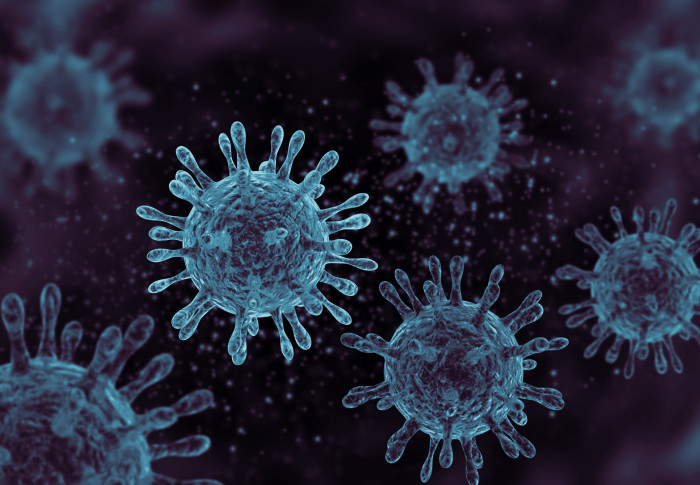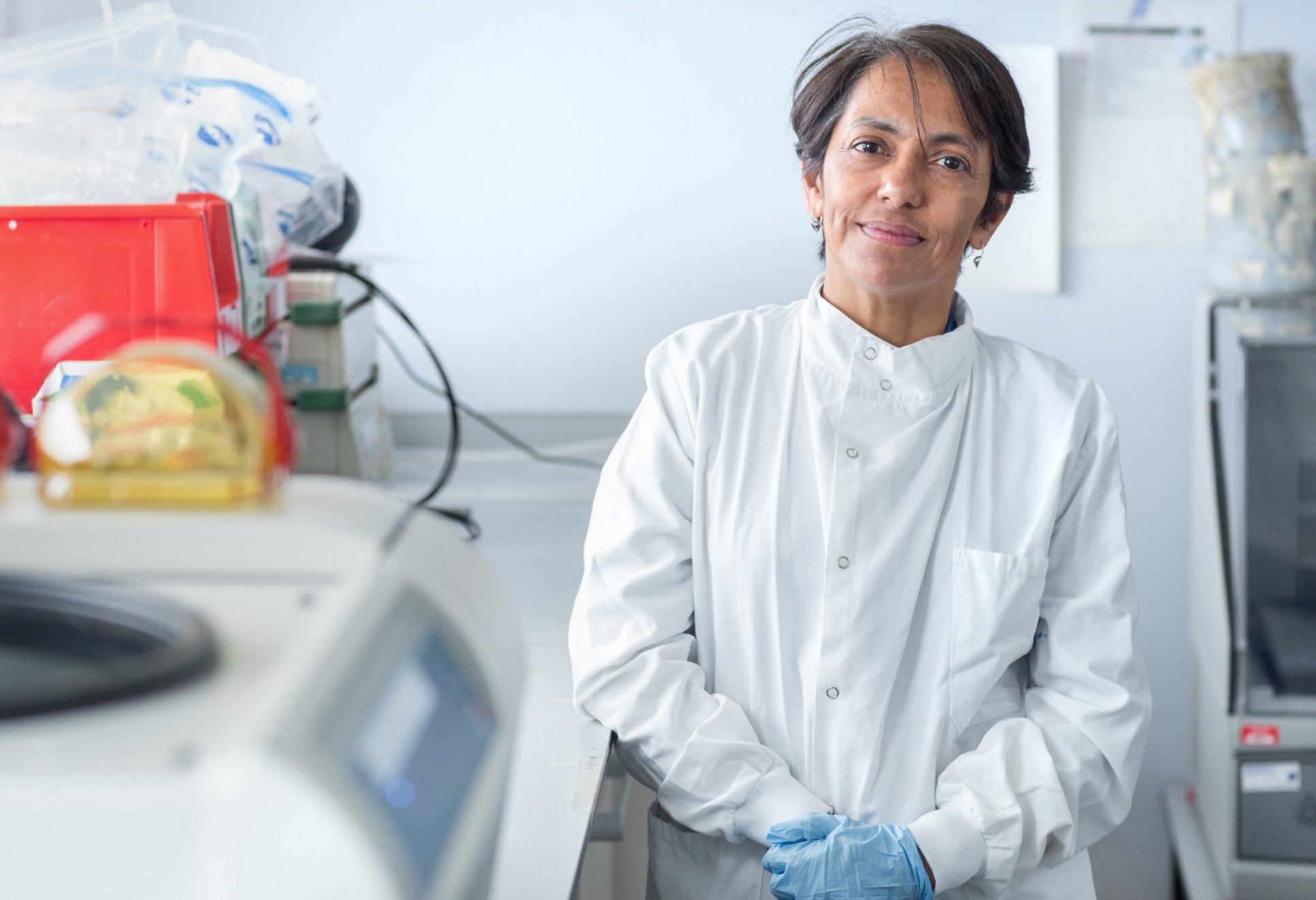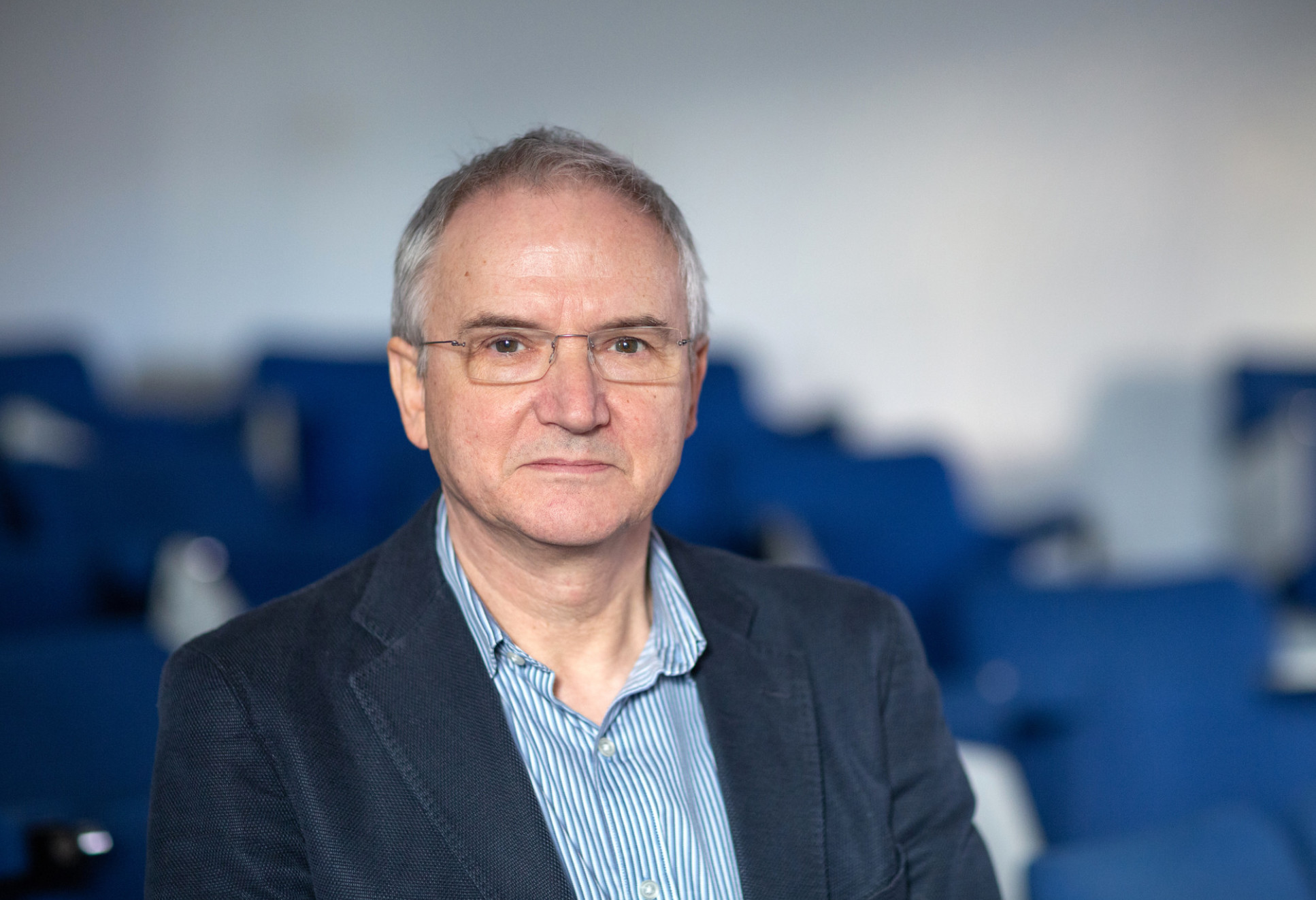COVID-19 experts from Imperial and Singapore share lessons from pandemic

Scientists from the UK and Singapore have come together to discuss their research during the COVID-19 pandemic at an online symposium.
Experts from Imperial College London and Singapore’s Lee Kong Chian School of Medicine (LKCMedicine) and National Centre for Infectious Diseases (NCID) met virtually earlier this month to discuss their findings from studying the pandemic.
Opening the virtual event, Professor Jonathan Weber, Dean of Imperial’s Faculty of Medicine, said that the world was living through an “extraordinary” time in which infectious disease research had become central to everyday life.
Professor Weber said: “I’m conscious that this month is the 40th anniversary of the first publications defining AIDS cases.
“I realise looking back how much of the science which has underpinned our extraordinary response to COVID-19 globally was developed in response to the AIDS epidemic and how rapid our response has been on all fronts this time.”
He added: “I feel catalysed by the investment that was made globally in infectious diseases 40 years ago, at a time when many people thought at the end of the 1970s that the battle against infectious diseases had been won.”
"Infectious disease is an area where Lee Kong Chian School of Medicine wants to build a very close partnership with Imperial College." Professor Joseph Sung Dean of LKCMedicine
Speaking from Singapore, Professor Joseph Sung, Dean of LKCMedicine, said: “I can’t emphasise enough the importance of infectious disease in this day and age. Everyone’s lives are affected and every day we are looking at the numbers and hoping that the world will someday recover to normal life again."
He added: “This symposium is also important for me because infectious disease is an area where Lee Kong Chian School of Medicine wants to build a very close partnership with Imperial College.”
Professor Leo Yee Sin, Executive Director at NCID, also reminisced on hosting both the Imperial team and Professor Sung at the new NCID building before the arrival of SARS-CoV-2, when the Imperial team was in Singapore for the inaugural tripartite symposium in 2019.
She said that NCID was privileged to be part of the organising committee for the 2021 symposium, adding: “I look forward to the continued partnership as well as opportunity to enhance collaborations”.
LKCMedicine is a joint medical collaboration between Imperial College London and Nanyang Technological University (NTU) which was established in 2013.
The symposium was co-organised by Imperial’s Charles Bangham and Graham Cooke, LKCMedicine’s Laurent Renia and Kah Leong Lim, and NCID’s Leo Yee Sin and David Lye.
Early testing for COVID
The first session saw Professor Shiranee Sriskandan, of Imperial’s Department of Infectious Disease, speak about her research on biomarker discovery in relation to COVID-19 and the challenges in London hospitals during the early stages of the pandemic.
Professor Sriskandan said that the experiences of hospitals in early 2020 made a case for earlier syndromic testing for viral infection and SARS-CoV-2 at the start of the COVID-19 pandemic to reduce transmission.
She said: “Restrictions on testing led to delays both in the UK and in the USA in terms of democratising the testing process. Clinicians and hospital laboratories were keen to test more but were not able to.”
Professor Sriskandan added that preliminary research suggested one in twelve acute infection admissions in the capital may have been due to COVID-19 in February 2020, before the virus was thought to have been widely spreading in the community.
She said: “I certainly think that onward spread within hospitals in the early stages of the pandemic in London may have contributed to the big surge in cases among people with co-morbidities and severe disease in March.”
The session also saw Barnaby Young, head of the Singapore Infectious Disease Clinical Research Network at NCID, discuss his work on vaccine breakthrough infections from COVID-19.
His research, which was primarily on cases of the Delta variant, found that vaccinated patients had a significantly lower chance of developing severe disease when catching COVID-19 compared to those who were unvaccinated.
The work also showed that viral load decreased faster in cases of vaccine breakthrough infections than in cases involving people who had not received a COVID vaccine.
 (Professor Shiranee Sriskandan, of Imperial’s Department of Infectious Disease)
(Professor Shiranee Sriskandan, of Imperial’s Department of Infectious Disease)
Modelling a return to normal
In the second session, Professor Azra Ghani, of Imperial’s School of Public Health, spoke about using modelling to assess how the world might return to normal life following the pandemic.
Professor Ghani said that further waves should be expected due to new variants or vaccines waning, but early evidence suggested boosters should have a major impact on preventing severe disease and deaths.
She added that researchers were working to understand what effect the Omicron variant might have on transmission of COVID-19 in the UK, as there were still several unknowns about the variant’s mutations.
"The rapid replacement that we have seen of the Omicron variant over Delta in South Africa is concerning." Professor Azra Ghani Chair in Infectious Disease Epidemiology at Imperial College London
Professor Ghani said: “The rapid replacement that we have seen of the Omicron variant over Delta in South Africa is concerning and we don’t know whether that indicates just immune escape or potentially a higher transmissibility virus – severity is also not yet known, nor is the efficacy of the vaccines.”
However, Professor Ghani noted that preliminary modelling of the new variant suggested that the world was “not back to square one” as vaccines should provide some protection, emphasising the importance of analysing data as it comes in over the next few weeks.
Associate Professor Alex Cook, from the National University of Singapore, who has a visiting appointment with NCID, then spoke about his research on how governments can manage the risk of imported COVID-19 cases when reopening borders for international travel.
He said that his research showed it was often better for policymakers to use the “most practical” test for travellers rather than the most sensitive, arguing that rapid lateral flow tests may be more effective than PCR testing to check incoming travellers at airports as they provide almost immediate results.
Associate Professor Cook added that closing international travel is only effective if it is done with a clear aim in mind, such as buying time to give more people vaccine doses or to collect more information on a new variant.
Studying effective treatments
In the final session, Professor Peter Openshaw, of Imperial’s National Heart & Lung Institute, talked about his research on the similarities and differences in infections from influenza, respiratory syncytial virus (RSV) and COVID-19.
Professor Openshaw’s work aims to compare the development of COVID-19 in patients to that of influenza and RSV to understand which medical interventions may be most effective for preventing severe disease.
He told the symposium: “Remdesivir and other antivirals almost certainly have a better beneficial effect if they’re used earlier [in the disease progression] and maybe have very little or no beneficial effect if they’re used later – and the same may possibly apply to antibody therapies.
“There are even studies hinting that antibody therapies, particularly with some types of pooled plasma, might be detrimental if they’re given during the inflammatory phase later in the disease.”
He continued: “As an immunologist working on viral lung disease, it is really interesting to note that the therapies that work best when the disease is established and when patients already have severe disease are largely those which are manipulating the host’s immune response.”
Professor Openshaw added that the three viruses [COVID-19, influenza and RSV] had significant differences in terms of virology and immunology but noted that comparing them had been “hugely beneficial” for understanding COVID-19.
He said: “What we have learned from the study of one virus does not necessarily transfer directly into what we think we know about other viruses.
“However, I would say that all the years we have spent studying RSV and its immunopathogenesis has really pointed us in many of the right directions when it comes to studying SARS-CoV-2.” (Professor Peter Openshaw, of Imperial's National Heart & Lung Institute)
(Professor Peter Openshaw, of Imperial's National Heart & Lung Institute)
Professor Laurent Renia, Director of the Respiratory and Infectious Diseases Programme at LKC Medicine, also spoke about his research into immune responses in people who have been vaccinated for COVID-19 and those who have acquired natural immunity from infection.
His work found that antibodies induced by 2 doses of the Pfizer vaccine tended to peak at about 90 days after receiving a second dose and then declined, but T-cell responses remained after this point.
Coupled with findings from epitope peptide mapping studies and those examining the neutralising capabilities of vaccine-induced antibody responses against various SARS-Cov-2 variants, Professor Renia’s work has supported the need for booster immunisations as well as broad-spectrum next generation vaccines.
He also presented on a new serological assay that is able to detect 97 per cent of pre/asymptomatic infections, which otherwise may have remained undetected.
He said: “This could be instrumental for sero-surveillance of undetected and undiagnosed COVID-19 cases in the community.”
A continuing collaboration
The event was the third of a continuing series of joint symposia between the three partners, with the session including dedicated time for exploring areas of research priorities, complementary strengths, and avenues to further strengthen this valuable collaborative partnership.
Article text (excluding photos or graphics) © Imperial College London.
Photos and graphics subject to third party copyright used with permission or © Imperial College London.
Reporter
Conrad Duncan
Communications Division